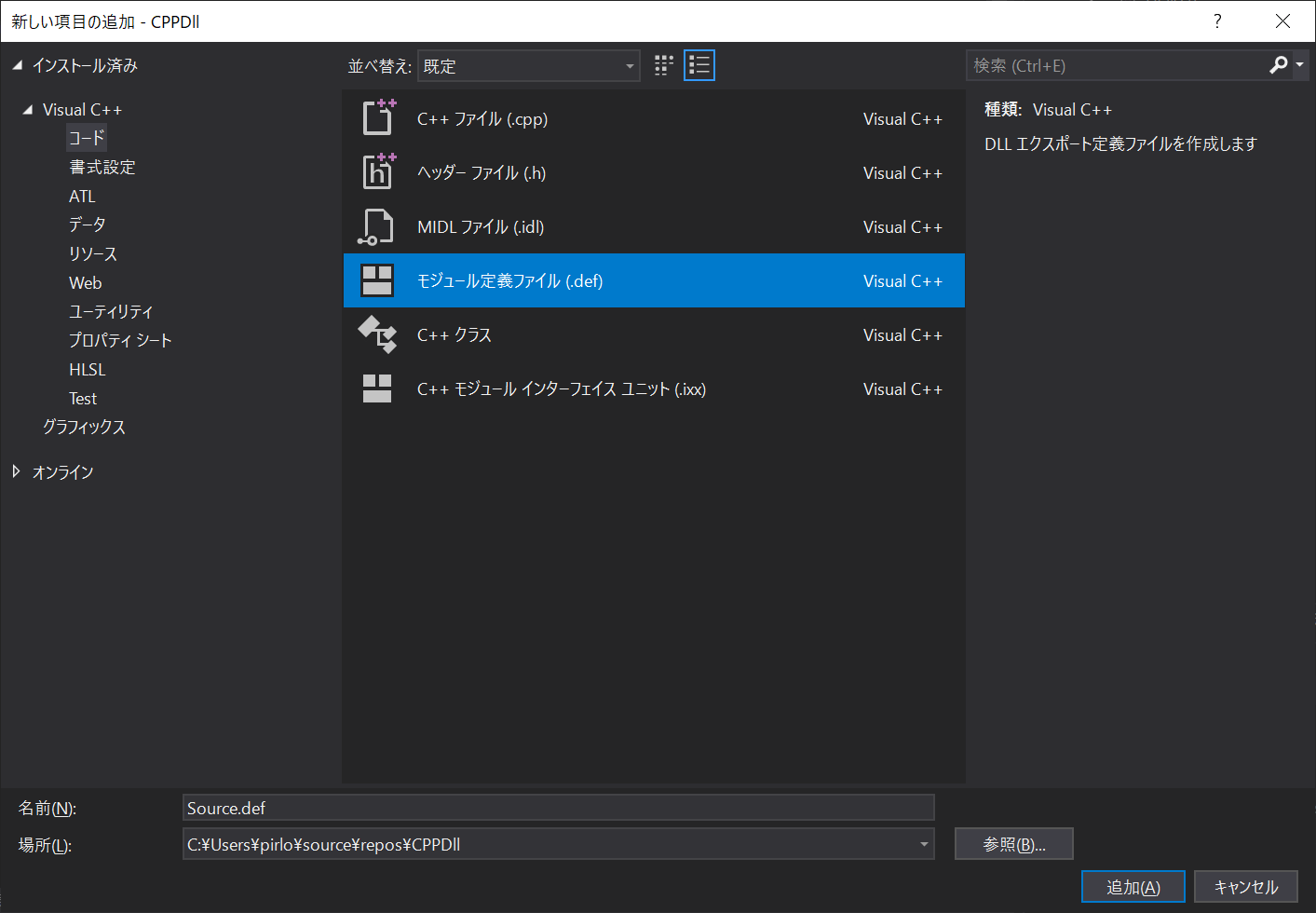前書き
前は、下記記事でdllexportを中心にDLL関数のエクスポートについてメモしました。
この記事で、dllexportと異なる方法をメモします。
モジュール定義(DEF)ファイル
下の図のように、Visual Studioでモジュール定義ファイルをプロジェクトに追加することができます。

このファイルに、
[関数名] @[番号]
のように記載すれば、関数がエクスポートされます。
source.def
LIBRARY
EXPORTS
output @1
※「@」の後ろにある番号は、以下の事象と関連しています。
DEFファイルが作成されてからコンパイルすれば、DLLと同名のlibファイルが作成され、DLLファイルにエクスポート情報が追記されます。
※確認方法は下記記事のDUMPBINの部分を参考
モジュール定義ファイルのメリット
上記記事に記載されている「Hello.h」ファイルと比べて、dllexportやextern "C"などの記載は不要になります。
ファイル数が1個増えましたが、ソースの可読性が向上します。
(特にWindows仕様があまり好きじゃない人に対して)
Hello.h
#pragma once
#include<stdio.h>
//①defファイルを使うとdllexportは不要
//#ifdef CPPDLL_EXPORTS
//#define DECLSPEC __declspec(dllexport)
//#else
//#define DECLSPEC __declspec(dllimport)
//#endif
typedef struct {
int id;
char name[20];
}st_info;
//②defファイルを使うと、extern "C"の指定も不要
//extern "C" {
// DECLSPEC int output(st_info*);
//}
//③単純に関数を宣言するだけでよい
int output(st_info*);